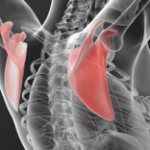
Your Brain on Exercise-Critical!
June M. Chewning MA, BS, AEA
The information provided is adapted from “Alzheimer’s Disease Prevention and Intervention,” a Medical Fitness Specialist Certificate Program authored by Alzheimer’s Research and Prevention Foundation (ARPF) and produced by Fitness Learning Systems.
Dementia is a syndrome characterized by a chronic deterioration relating to memory, thinking, behavior, and the ability to perform activities of daily living. Consciousness, however, is not affected. Dementia is not a normal part of aging. The cause may be related to a variety of diseases and injuries that may have affected the brain. The most common form of dementia is Alzheimer’s disease (AD).
There are 47.5 million people suffering from dementia worldwide, with 7.7 million new cases each year. The most common cause of dementia, Alzheimer’s disease, makes up 60-70% of cases. (Dementia 2016) Millions of Americans are challenged by Alzheimer’s disease and other forms of dementia. In 2016, an estimated 5.4 million Americans of various ages are diagnosed with Alzheimer’s disease, and approximately 5.2 million of those are ages 65 and older. (Alzheimer’s Disease Facts and Figures 2016)
Although there are natural physiological changes that occur with age, memory loss is neither normal nor a natural process of aging. It is important to take a proactive role in retaining the strength, resiliency, and vitality of the brain. Research has shown that just as the body needs strength-building exercises to maintain muscle strength, so does the brain.
Physical exercise is identified through recent research as one of the key elements in the ARPF 4 Pillars of Prevention™. “Although at this time, medications have no proven neuroprotective effect on dementia, an evolving literature documents significant benefit of long-term regular exercise on cognition, dementia risk, and perhaps dementia progression.” (Ahlskog 2011 metanalysis) Many studies suggest that exercise reduces the effects of dementing neurodegenerative mechanisms.
At this time, research significantly indicates that exercise is associated with a reduced risk of cognitive impairment and dementia. This appears to happen in two ways: (Ahlskog 2011)
- A convergence of evidence from both animal and human studies indicate that aerobic exercise seems to reduce the risk of degeneration of brain processes and seems to protect the brain from biological and neurological decline.
- The cardiovascular benefits of aerobic exercise reduce vascular risk improving cerebrovascular (carotid and brain artery) health, reducing plaque build-up, and maintaining better circulation to the brain.
As fitness professionals, we are in a position more than ever to help people with making healthy lifestyle choices and with maintaining quality of life. Exercise is critical to the biological and neurological health of the brain and vascular system that feeds the brain. Learn more about ways to prevent cognitive decline to help your clients live a long, healthy life with vigor and clarity.
Bibliography:
- Alzheimer’s Research and Prevention Foundation. (2016) Alzheimer’s Disease Prevention and Intervention Medical Fitness Specialist Program. www.FitnessLearningSystems.com. 888.221.1612.
- Ahlskog, J. Eric, Yonas E. Geda, Neill R. Graff-Radford, and Ronald C. Petersen. “Physical Exercise as a Preventive or Disease-Modifying Treatment of Dementia and Brain Aging.” Mayo Clinic. Proceedings 86.9 (2011): 876-84. Web.
Alzheimer’s Disease is now the 6th leading cause of death in the U.S. All health-fitness professionals are called to stem this epidemic with prevention and intervention. Get educated and get on board!
Link to: Alzheimer’s Disease Prevention and Intervention Specialist Certificate Program






No comment yet, add your voice below!